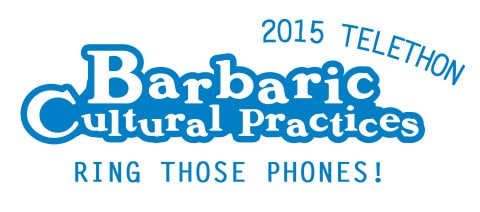The upcoming federal election has undeniably been exciting — politically and otherwise. However, this incredible zeal raises an important question: at what point did elections become indistinguishable from trashy reality television?
Arguably, elections were the original reality TV programming, and it’s not like mudslinging and attack advertisements are recent developments in politics. Still, this autumn seems to mark a new high — or more accurately a new low — for the scandalous nature of election coverage.
Rather than simply focusing on three old people and one slightly younger person bickering about budgets in televised debates, so far the coverage of this election seems to be much more focused on scandalous, tweetable and meme-worthy shock moments, rather than real substantial politics.
The Conservative Party has been subject to widespread ridicule and Internet mockery in the aftermath of the so-called “Peegate” scandal, in which video footage was leaked showing former Conservative candidate Jerry Bance urinating into a coffee cup in a stranger’s home. While this is admittedly pretty hilarious, it doesn’t reflect the party nearly as much as it reflects on him personally. In the big  picture, its relevance to this election is more or less insignificant.
picture, its relevance to this election is more or less insignificant.
Similarly, we’re constantly hearing about candidates stepping down after social media gaffes are brought to the attention of the public. In a more notable case, former Liberal candidate Cheryl Thomas stepped down in late September 2015 after a 2012 Facebook post quoting an off-colour joke from a comedy special was dug up and used against her out of context.
Politics aside, I would have to wager that paraphrasing a comedian isn’t really grounds to lose one’s credibility as a public servant. Was she foolish to make the post? Most likely, but it seems that overblown scandals and Internet fuck-ups are quickly becoming decisive factors in our political climate.
If not reality TV, this election is undeniably similar to junk food. It’s delicious and can all-too-easily be consumed in copious amounts, never making you feel full and providing the consumer with nothing of nutritional substance in return.
In short, if you’re trying to follow this election through media coverage, you’re likely not going to be getting much out of it that can really inform you as a voter — just inconsequential junk.
Even to look at issues of party policies and campaign promises, many of the issues at the forefront this election are based on nothing more than buzzwords.
The Conservatives’ proposed Niqab bans and “barbaric cultural practices” tipline and the Liberals’ plan to legalize marijuana “right away” are appeals to simplicity. They set fire to social media, they can be explained in a single sentence or less and you don’t even need to know anything about politics in order to form a stance on them, one way or another.
Aren’t we dumbing down politics when we devalue elections into disposable media fodder like this? It seems that to make an election into a sensationalized media spectacle centered around Facebook posts and peeing in coffee cups instead of real politics is to cheapen democracy considerably.
When voter turnout in Canada is grim, it would seem that this is a good thing. Social media blurbs make everything a little more accessible. But maybe politics are better off being mundane, as opposed to scandalous and exciting.
If we only pay attention to the “flashy” topics of discussion in this election, we will undoubtedly neglect important subjects that can’t simply be made exciting — like economic policy, environmental concerns and more.
It seems that we can have politics be informative or fun, but there’s little room for crossover. As such, given the choice between the two, I would pick informative every time.
As much as I’ve enjoyed watching this trainwreck of an election unfold, when we step into the voting booth, we should have more informing our decisions than buzzwords and oversimplified appeals to ignorance.
Leave a Reply